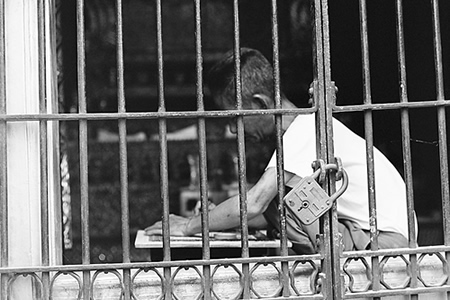Module 2: Section A
Civil Disobedience
Have you ever refused to clean your room until your parents extended your curfew? Or refused to attend classes until your favorite teacher was rehired? Throughout history, people have committed acts of civil disobedience (breaking the rules to make a point) for causes they believe in. Henry David Thoreau was a Transcendentalist who wrote an important essay from a jail cell, while being punished for refusing to pay taxes to a government that was not representing his interests.
Today you are here to listen to part of Civil Disobedience. Think about how this essay used rhetoric to influence movements in political activism and inspired great men like Mohandas Ghandi and Martin Luther King Jr.
"Let every man make known what kind of government would command his respect, and that will be one step toward obtaining it."
"After all, the practical reason why, when the power is once in the hands of the people, a majority are permitted, and for a long period continue, to rule, is not because they are most likely to be in the right, nor because this seems fairest to the minority, but because they are physically the strongest. But a government in which the majority rule in all cases cannot be based on justice, even as far as men understand it. Can there not be a government in which majorities do not virtually decide right and wrong, but conscience? — in which majorities decide only those questions to which the rule of expediency is applicable? Must the citizen for a moment, or in the least degree, resign his conscience to the legislator? Why has every man a conscience, then? I think that we should be men first, and subjects afterward. It is not desirable to cultivate a respect for the law, so much as for the right. The only obligation which I have a right to assume is to do at any time what I think right."
(Henry Thoreau, Civil Disobedience)
The passage above is used for the Civil Disobedience Reading for Meaning assignment located in the Tasks and Assignments folder. This assignment is designed for you to discover more about the connection between Transcendentalism and rhetoric. Thoreau wrote Civil Disobedience from jail.

